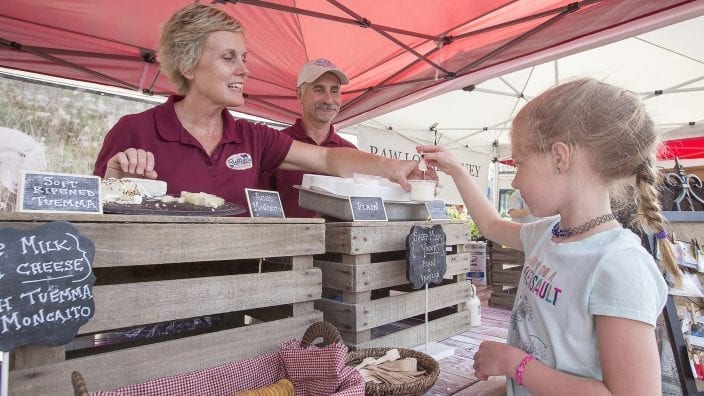Farmer’s Guide to Trucking Regulations available to Ohio Farm Bureau members
The guide includes a farm driver checklist, overview of state and federal regulations and exemptions, CDL qualifications and more.
Read More
According to U.S. census data, the average age of a farmer is 57. While few are planning to retire at that time, farmers should begin thinking about how they would like to live in retirement and how that can be achieved.
Financial planning can be intimidating, so here are some things to consider as you begin to think about the retirement in your future and what that means to your farm.
Knowing how much money is enough. Considering the rising cost of living, increased health care costs and possible decreases in Social Security benefits, farmers can see a lower standard of living in retirement. Realistic and effective financial planning can help solve these issues and lead to a more secure lifestyle in retirement and peace of mind. Keep these principles in mind: spend less than you make, budget to save at least 10 percent of your net income, manage credit wisely, pay yourself first and avoid procrastination.
Plans and portfolio. One of the best and most efficient ways of acquiring wealth is to take advantage of retirement plans established under IRS regulations for the self-employed. They include IRAs, Keogh Plans and Simplified Employee Pensions (SEPs). Beyond a single plan, consider creating a diverse portfolio of investment assets. The key is to start early and invest continuously at a level of risk that is appropriate to your situation.
Land and equipment. Determine your plan for your land and equipment. Farmers may want to sell these assets in order to generate income or they may go to the next generation of owner/operator. Each option has many considerations including taxes and more planning in the form of business succession planning.
Renting or selling out. If you consider renting your land and operation you should create a plan to transition from an operating farm or ranch to an income-producing investment. This also comes with additional considerations like determining how much rental income will be needed to fund retirement and estate planning for the extended future of your business and assets. When selling, the best way to determine the farm or ranch’s value may be to get an appraisal based on the amount of acreage, the value of machinery or equipment in the operation and the crop or livestock the farm is able to send to market. The appraiser might help pinpoint problems that could negatively affect the property’s value and may suggest changes to improve the operation and its overall value. Be sure to keep your files in good order, such as tax returns, licenses, permits and employee records.
Lastly, it’s important to enlist the help of qualified professionals who don’t have a stake in final decisions. Qualified professionals may include your banker, your accountant, your personal attorney or a financial or estate planner. If you would like to help in finding a qualified professional to speak with, contact the
Nationwide Land As Your Legacy team at [email protected] or toll-free at 855-529-2729.


The guide includes a farm driver checklist, overview of state and federal regulations and exemptions, CDL qualifications and more.
Read More


The emergency fuel waiver to allow the sale of summer gasoline blends containing 15% ethanol will lengthen the period during which Americans can continue buying E15 from June 1 to Sept. 15.
Read More

The Small-Scale Food Business Guide covers federal and state regulations for selling food products such as raw meat, dairy, eggs, baked goods, cottage foods, fruits and vegetables, honey and more.
Read More

New resources and technology are broadening the different types of sales tools and strategies available to farmers.
Read More

ODA will enroll 500,000 acres into the program for a two-week sign-up period, beginning April 22, 2024, through May 6, 2024. Contact local SWCD offices to apply.
Read More

Katie Share of Columbus has been named ExploreAg and Youth Development Specialist for Ohio Farm Bureau.
Read More

Mary Klopfenstein of Delphos has been named Young Ag Professional and Ag Literacy Program Specialist for Ohio Farm Bureau.
Read More

The plan has been updated to give sole proprietors access to more rate stability and a smart solution that offers potential savings on health care.
Read More

The American Farm Bureau Federation, in partnership with Farm Credit, is seeking entrepreneurs to apply online by June 15 for the 2025 Farm Bureau Ag Innovation Challenge.
Read More

Adele Flynn of Wellington has been elected treasurer of the Ohio Farm Bureau Federation and now holds the third highest elected office in Ohio’s largest and most influential farm organization.
Read More